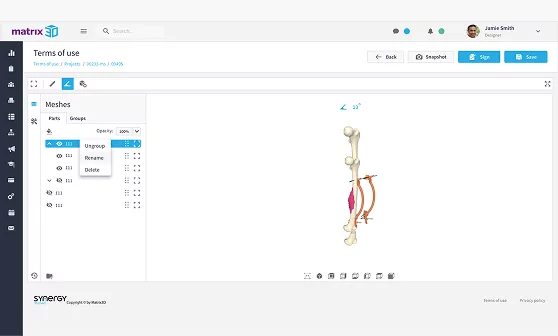Today, education is one of the most important means to be intellectually savvy. That’s why humanity puts all the forces into traditional education and technology-driven education. The forecasts predict the education market to receive revenue of $11.6 billion by 2025.
Among the growth of the already existing businesses, everyone can spot the rise of education startups. In 2023, about 10 edtech startups received profits of over $1 billion each. Indian Byju became the best startup with $5.8 billion in revenue. The rest of the eLearning startups were from China and the USA.
But what are the top EdTech companies in 2025? Let’s explore the best EdTech startups, their current market changes, and a few tips on how to choose the right technologies for your tech education startups.
- Education Technology Startups Market
- Top EdTech Startups and Companies in 2025
- 1. Sparx
- 2. VIP Kid
- 3. Unacademy
- 4. TORSH Talent
- 5. A Cloud Guru
- 6. Zen Educate
- 7. 4.0 Schools
- 8. Amboss
- 9. Applyboard
- 10. Guild Education
- How to Choose Technologies for Your EdTech Startups the Right Way?
- Artificial Intelligence
- Big Data Analytics
- Blockchain
- Gamification
- Consider Inoxoft your trusted partner
- Final Thoughts
Education Technology Startups Market
According to Yahoo! Finance, the EdTech market expects $40 billion by 2027 if the CAGR of 15.52% stays the same. Industry breakthroughs appear one after the other, loading the market with great solutions and offers.
If you want to launch a startup, gain your insights from the following 6 factors:
- Gamification and its growth
- Hybrid model adoption
- Connectivity infrastructure enhancement
- Smartphone penetration advancement
- 5G technology introduction globally
- Private Equity and Venture Capital investments
For instance, the key players in the market are searching for ways to:
- Provide direct product outreach to the end-users via the freemium model (Coursera, Khan Academy)
- Settle a strong business position on the digital education market (Pearson, Himalaya)
- To give learners what they demand to upgrade their professional skills (one learner requires about $19.20 billion to cover his/her needs)
- Available online certification platforms for candidates, who need a certificate to apply for a job (Coursera, Udemy, etc.)
This is what you should expect from 2025 digital development in education. Startups should ground their solutions on the perspective trends that continue to be in demand.
Top EdTech Startups and Companies in 2025
There is a growing demand for convenient and remote ways of gaining knowledge. So, what are the top EdTech companies on the market? What are the top EdTech startups to look up to? Let’s enlist!
1. Sparx
Sparx was founded in 2011 in the United Kingdom (Exter). It is a math platform for professional math educators to provide virtual math classes for their students, which offers personalization, collaboration, content, automation, and innovation. And, the results are evident: Sparx is the No.1 platform to learn math in the UK and it has boosted the grades of many students already.
2. VIP Kid
VIP Kid was founded in 2013 and is located in Beijing (China) and San Francisco (USA). VIP Kid is another virtual learning technology that connects teachers and students all around the world to help the latter learn English. Due to its native teachers and the best learning experience, the platform gains its No.1 place in the world.
3. Unacademy
From Bengaluru, founded in 2016, Unacademy provides video lessons for students of all ages and on any subject. So, it is based on video streaming technology. Handpicked teachers can upload their video lessons forming a single course or add to the subject. This makes Unacademy quite popular and the largest learning platform in India.
4. TORSH Talent
Founded in 2011 in New Orleans, LA, TORSH Talent is an eLearning platform designed to streamline professional development. It combines observation, coaching, and learning in one convenient package. If you are working in one location or many, the platform offers easy accessibility and seamless integration into existing routines. Invest in your staff’s growth with TORSH Talent, a user-friendly platform that inspires and supports professional development.
5. A Cloud Guru
The platform from Melbourne (Australia), founded in 2015, A Cloud Guru is one of the best education platforms that focuses on IT staff. The training involves cloud technology teachings. And, there are different domains of cloud technology they cover.
6. Zen Educate
Founded in 2016 in London, Zen Educate helps schools recruit teachers via edtech. So, by allowing schools not to pay fees and salaries to recruitment agencies, the platform enumerates only skilled and relevant professionals. And, students get the best education possible.
7. 4.0 Schools
4.0 Schools from New Orleans, Louisiana, was founded in 2010. Their target audience is future CEOs and leaders. The platform provides online training for these narrow groups. So, students, who want to be entrepreneurs one day, are welcome to receive all the needed skills. 4.0 Schools is among the best online education startups in the world.
8. Amboss
Amboss, located in Berlin (Germany), was founded in 2013, and is related to healthcare. It provides medical exam questions for medical students. With Amboss, students focus only on one subject – medicine and study it inside out.
9. Applyboard
Waterloo, Ontario, has brought another great startup in 2015. Applyboard provides online eLearning courses for students, who would like to improve their skills. 1200 schools and institutions in North America provide the course materials and make it possible for students to access education all over the world via online means.
10. Guild Education
Guild Education from Denver, Colorado, was founded in 2015. This is a paid platform, which allows employers to get an education for their employees. And, the staff can study virtually. This allows personnel to improve their skills and knowledge and practice everything obtained at work.
How to Choose Technologies for Your EdTech Startups the Right Way?
There are so many ideas these days considering the EdTech app demand. So, the choice of technology depends on the concrete Android (mobile), desktop, or even web idea you are trying to put into production. However, consider the following ones first:
Artificial Intelligence
With AI, you can automate and adapt almost any educational process/material. With AI, everything you thought was impossible can become possible and pretty interactive. Cartoon-like tutors for kids already exist. And that makes AI the first technology to think of.
Big Data Analytics
Analyze and structure large piles of information to improve our education in future. And, why not? Big Data allows us to achieve a personalized approach. Students can be taught based on their personal achievements, and preferences.
Blockchain
Small blocks of data forming a chain with the help of Blockchain cannot be easily altered or changed. For that reason, permission is needed. So, this is a great technology used for academic purposes. Especially, to form a chain of lessons and protect student credentials.
Gamification
Today, if you can implement an educational process into a game – this is a success. It is pretty fun and easy to learn with the help of a game, develop speed and logical thinking, etc.
So, figure out what needs your educational technology startups are going to cover and adjust your idea with the best technology available. Also, partner with investors to get appropriate funding for your idea to be launched.
Consider Inoxoft your trusted partner
Inoxoft is also an e-learning software development company providing top software development services. Consider our LMS development services if you need innovative software for your students. An LMS can enhance student performance and allow teachers to objectively evaluate students’ learning progress. Also, you can embrace the benefits of virtual reality in education. Need an effective and interactive tutoring platform? AI is a great choice due to its vast capabilities.
Inoxoft’s team of experts keeps up with the world’s pace. So, we know what are the latest tech trends in education. Let us know about your e-learning idea and we will make a free and detailed consultation about your idea’s implementation. Contact us! Let’s make education even more advanced with the help of IT technologies! Get all the support you need from Inoxoft!
Final Thoughts
The article has enlisted the top education startups of 2025. The 10 described education technology startups were created with one single purpose – to educate. And, they cope with this mission pretty well. Each company provides the best possible EdTech virtual, online, interactive, insightful, and narrow-focused educational platform for students, who need certifications, employees, who need skill enhancement, and all interested in further education.
To become as successful as these educational technology companies, you should consider tech trends on the market, your target audience needs, accessibility, and usability in your app. If you have an idea on developing e-learning app, don’t hesitate to make the first step to becoming one of the best education startups of today.
Frequently Asked Questions
What are the edtech startups?
- Sprax
- Vip Kid
- Unacademy
- Torsh
- A Cloud Guru
- Zen Educate
- 4.0 Schools
- Amboss
- Applyboard
- Guild Education
What technologies should educational technology companies implement in 2022?
- AI
- Big Data
- Blockchain
- Gamification










































